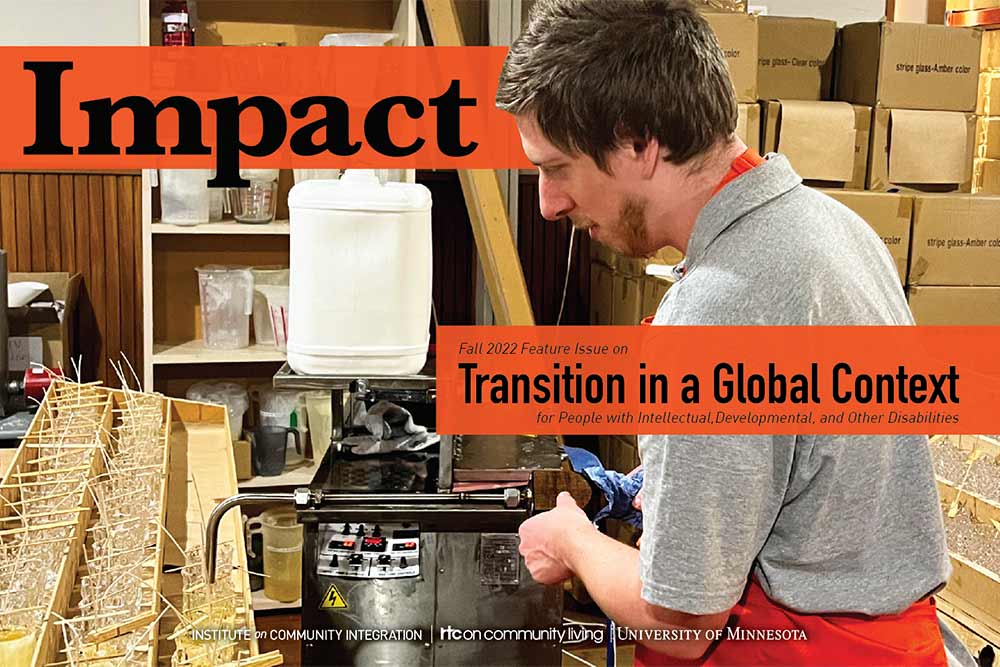
The latest issue of Impact places the critical period of transition from school to adulthood in a global context.
Articles include a call for educators around the world to link transition programs for youth with intellectual, developmental, and other disabilities (IDD) more closely to inclusive, real-world situations. People with IDD and their families tell their personal transition stories, and successful programs around the world share how they support young people as they move into the adult years.
The Institute’s Renáta Tichá and Brian Abery, co-directors of ICI’s Global Resource Center for Inclusive Education, along with Roger J. Stancliffe and Jan Šiška, served as issue editors.
“This issue brings to the forefront the different philosophies and approaches to secondary transition of youth with disabilities across different countries, broadening our perspective on this important life milestone,” Tichá said. “Our collective work in the field played key roles in informing this issue.”
Abery, Tichá, and Šiška, an associate professor at Charles University and University of West Bohemia, Czech Republic, also are collaborating on U.S. and Czech transition grants. Šiška is a visiting Fulbright-Masaryk research scholar at the Institute.
Working internationally brings an additional dimension to understanding secondary transition in the context of different cultures, practices, and policies. The group recently visited Japan as part of a trip funded by the U.S. Embassy in Tokyo that was focused on the transition to employment for people with disabilities. They found some common points of emphasis, such as work-based learning, but also key differences. A greater emphasis in Japan on collaboration and teamwork is a promising practice to try in the United States, for example.
“We wanted to show there are multiple ways of approaching transition, and that we can learn from one another,” said Stancliffe, an emeritus professor from the University of Sydney [Australia] who is a senior research associate at the Institute and an issue editor for the Feature Issue on Transition in a Global Context for People with Intellectual, Developmental, and Other Disabilities.
For 35 years, Impact has brought together editors and authors from diverse sectors of the disability field to bring perspective to research, share practice strategies, and tell the personal stories of people with intellectual and developmental disabilities and their families.
Subscribe to Impact here – it’s free!



